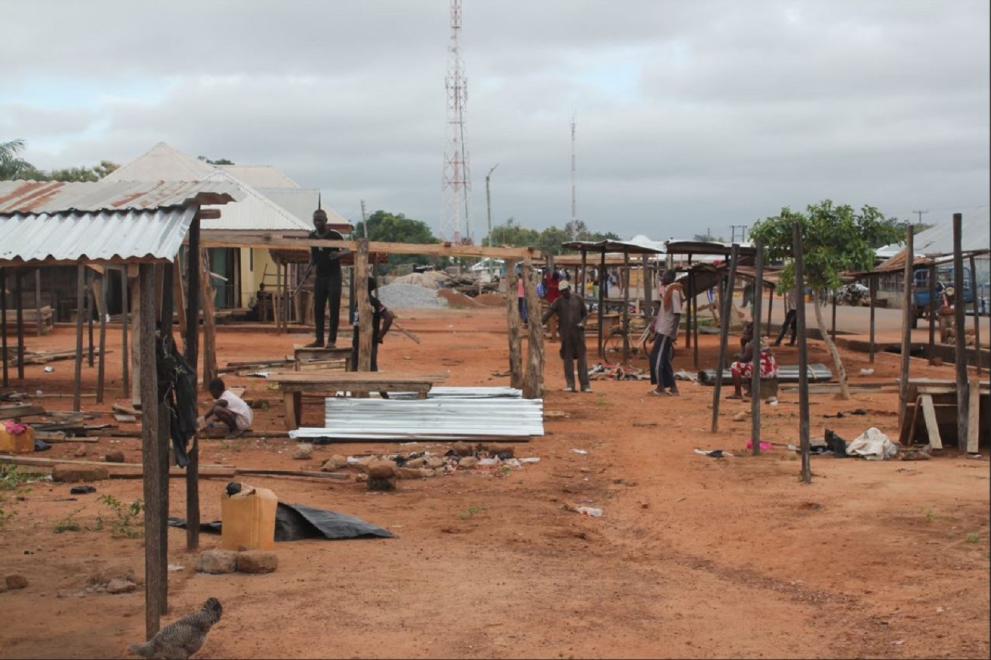
One impact of climate change in central Ghana is the increasingly unpredictability of annual rains, robbing 43-year old subsistence farmer Boatemaa Aminatu and her six children of a reliable income and forcing them to rely on the goodwill of neighbours. However, Ms Aminatu hopes a new cash for work initiative to rehabilitate her community market could throw her a much-needed lifeline and contribute to improving her community’s climate resilience all at the same time.
Ms Aminatu was a child herself when she first started farming. Back then, she may never have been rich but a small farm could produce enough staples to support a family like hers as long as preparations were made in time for the annual rains in February. These days, Ms Aminatu has only been able to get by because the owner of the land she farms accepts small contributions in kind instead of levying annual rent.
It doesn’t rain like it used to,” lamented Ms Aminatu, whose cassava and maize crop both failed this year, leaving her reliant on rice handouts from kindly neighbours.
“Now we don’t know when the rains will start or stop, which makes it very difficult for us.”
Ms Aminatu’s is a typical story in central Ghana, where many communities are struggling to eke out an existence from subsistence agriculture amid climate change-related disruption to weather patterns. Many young people are looking to build a future elsewhere, perhaps even gambling their lives to migrate overland and on boats to Europe.
The GrEEn Project, Boosting Green Employment and Enterprise Opportunities in Ghana, isa four-year action from the European Union, the Embassy of the Kingdom of the Netherlands in Ghana, UNCDF and SNV. The project aims at creating greater economic and employment opportunities for youth, women and returning migrants by promoting and supporting sustainable, green businesses in the Ashanti and Western of Ghana. GrEEn is implemented under the European Union Emergency Trust Fund (EUTF) for Africa with funding worth 20 million euro.
It's through the GrEEn Project that the Local Climate Adaptive Living Facility is being rolled out in Ghana, ensuring that local governments have additional resources and capacity to deliver climate resilience actions that meet community needs, like this plan to rehabilitate the community market in Drobonso.
After consultation with community members in Drobonso, where Ms Aminatu lives, the local government is to receive one of LoCAL’s innovative Performance-Based Climate Resilient Grants to finance resilience building and adaptation actions that the community have identified as a priority.
Ms Aminatu is one of 92 community members who will take part in the cash for work initiative to upgrade the Drobonso market, the community’s economic and social hub. When unpredictable rains do come to the region, the market regularly floods, making it unusable and impacting livelihoods. The project will be especially beneficial for the women of the community, who make up the majority of the farmers and market traders in Drobonso. With the money Ms Aminatu will receive for her labour, she plans to buy vegetables and salt to set herself up as a trader in the market, supplementing her income for herself and her children.
This article was first published here.
Details
- Publication date
- 17 September 2021
- Region and Country
- Ghana
- Thematic
- Greater economic and employment opportunities
- Partner
- United Nations Capital Development Fund
- SNV Netherlands Development Organisation, Ghana
